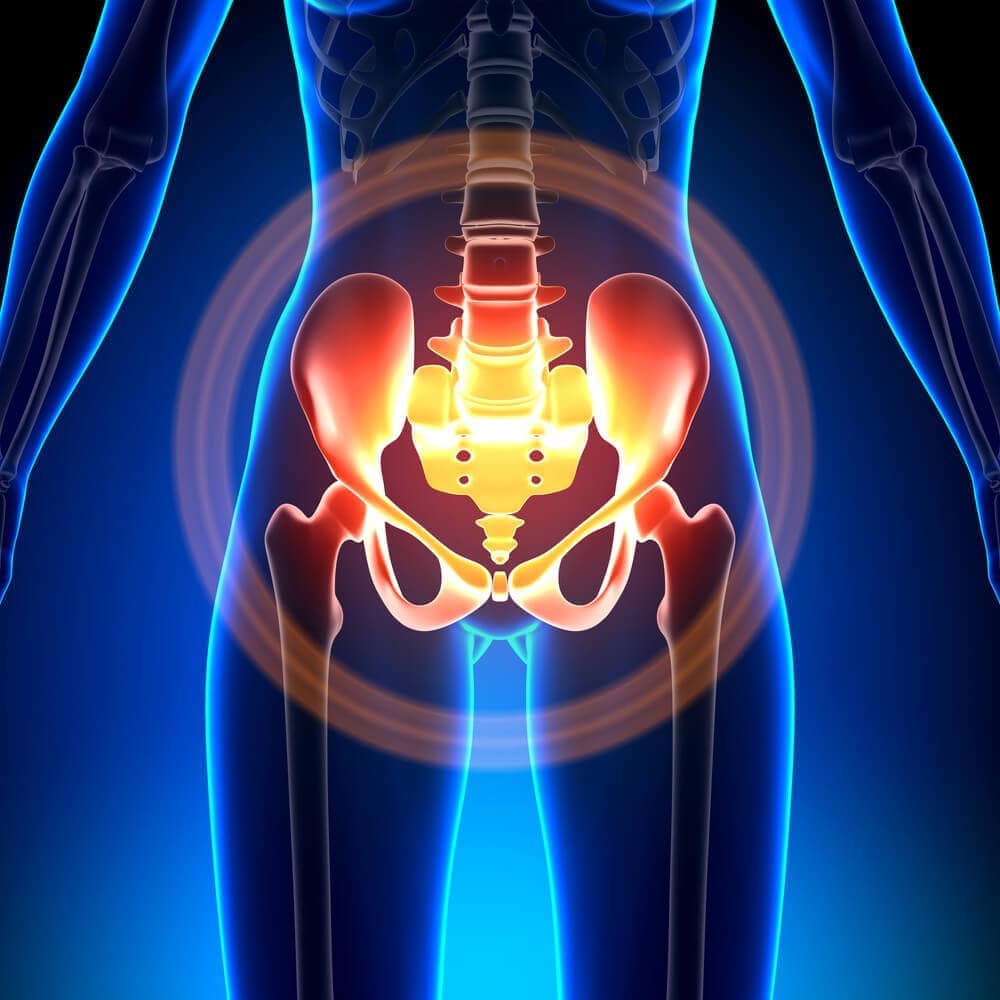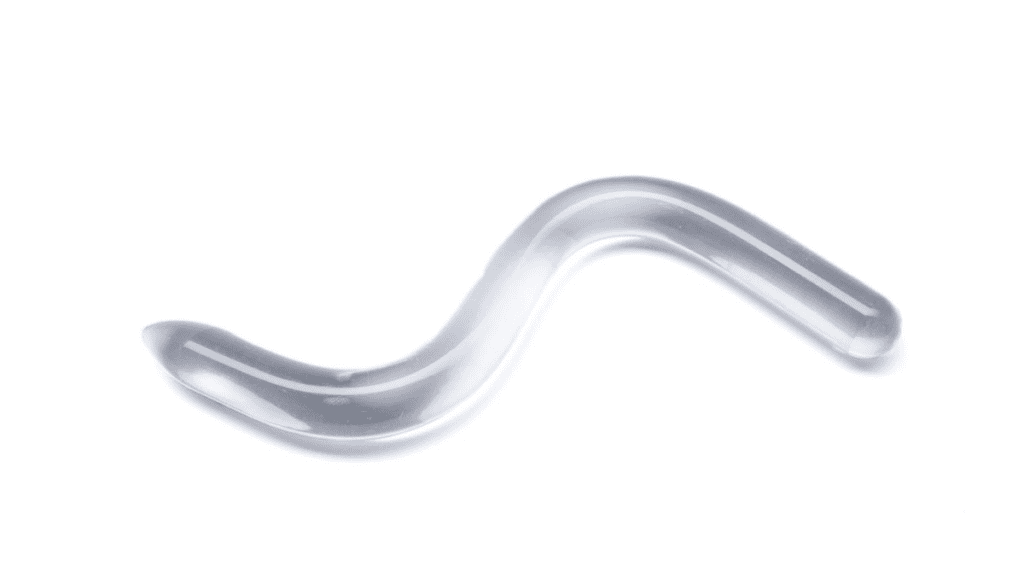The other day, I was speaking with a friend who has chronic constipation. When she asked me for advice, I suggested pelvic floor therapy.
What is Pelvic Floor Therapy?
In essence, pelvic floor therapy is a treatment provided by a licensed physical therapist trained to treat pelvic floor dysfunction.
Pelvic Floor Therapy Equals Kegels?
She said that she was already doing it, so I asked, “where do you go?” and she replied, “I do it at home. I found out about it on the internet and now I do kegels.”
Pelvic Floor Therapy?
While this is a fantastic start to getting in touch with some of the pelvic floor muscles, what I was referring to is generally considered a medical treatment from a physical therapist.
This can often involve learning to relax and release overly tight muscles in the pelvic floor, though, like any therapy, it is customized to the individual.
Pelvic Floor PT
This therapy may include stretching and or strengthening of the pelvic floor muscles as well as those of the hip, low back, thighs, and more.

Free exclusive eBook, plus recipes and health tips, delivered to your inbox.
Pelvic Floor Massage
Typically, this is a hands-on or manual therapy. It may involve working vaginally or rectally.
Pelvic Floor Dysfunction: Home Treatment
While it is fantastic to be able to see a pelvic floor therapist for treatment, not everyone has insurance that covers pelvic floor injury.
Pelvic Wand
When I am not able to make the time to get to a pelvic floor therapist and am suffering from discomfort, I use a pelvic wand that can reach up and into the pelvic floor muscle area.
What is a Pelvic Wand?
Wondering what is a pelvic wand? It’s a pelvic floor massage tool for relaxing and releasing the pelvic floor muscle team.
These muscles are located deep in the pelvis and the pelvic wand is designed so that you can reach them more easily to do soft tissue massage and trigger point release on yourself.
Therawand
The brand of wand I use is called Therawand, and it is made of a medical-grade polymer blend of ABS and Polycarbonate.
TMT Pelvic Wand
Alternatively, when the above wand is not in stock, you can use the TMT Pelvic Floor Wand. I have also used this wand with good results.
How to Use: Pelvic Wand
Above is a video with instructions for how to use a pelvic floor wand at home.
How to Relax Pelvic Floor Muscles: Online Pelvic Floor Therapy
If you’re not interested in pursuing the wand, you can try online pelvic floor therapy.
My friend Lauren, who can be found on Instagram at thelaurenohayon, is a genius when it comes to pelvic floor education and rehabilitation.
Lauren states that the constant external rotation from yoga and Pilates can tighten the pelvic floor. I began teaching yoga over 30 years ago, and we were very external rotation focused.
I’ve found that Lauren’s philosophy and exercises are effective in providing relief and opening for my pelvic floor while strengthening my core.
My Pelvic Floor Injury
Lauren’s work, along with hands on treatment from a pelvic floor therapist for a few years prior, has helped with a severe scar from an episiotomy that has caused me pain over the years.
My boys were born in the late 1990s, and over the past decades, I had been suffering from discomfort due to the episiotomy.
Episiotomy Pain
Strangely, a midwife gave me the episiotomy during an otherwise natural, totally un-medicated childbirth.
Vaginal Pain
I still don’t understand why and would have preferred not to have it. It took a long time to heal and caused me severe post-partum pain for months.
I never spoke about it with anyone, thinking it was normal that it hurt to sit down for a year after my son was born. It especially hurt when I was sitting and nursing.
Silent Suffering
Thanks to a growing number of pelvic floor physical therapy practices, women can be treated for our pain.
And thanks to the resource Lauren has created we have a place to learn, gather, and discuss what was once taboo.
Pelvic Floor Therapy for Men
Because pelvic floor injuries also occur in men, pelvic floor therapy can also be beneficial for them.
I cannot speak from personal experience, obviously, but the practice I go to in Boulder says that 35% of their patients are male.
What is Pelvic Floor Dysfunction?
Pelvic floor dysfunction is often a component of the following medical issues:
- Pelvic Pain
- Low Back Pain
- Hip Dysfunction
- Bowel Issues
- Bladder Dysfunction
- Functional Incontinence
- Uterine Prolapse
- Painful Intercourse
- Episiotomy Damage
- C-Section Scarring
Pelvic Floor Physical Therapy
I have gone to a practice in Boulder called Pelvic Therapy Specialists.
They take most forms of insurance, which I think is amazing. The experience is lovely from the moment you call them on the phone.
Pelvic floor therapy takes place in such a vulnerable part of the body that I would only recommend going to a place where all of the employees are incredibly pleasant, personable, and thoughtful.
Finding the Right Pelvic Floor Specialist
Several years ago, I went to a pelvic floor therapy practice where the receptionist was not a happy person.
I felt crushed every time I called and set up an appointment over the phone.
I also brought a friend with me to each appointment just to have someone to keep me company and to act as a buffer in dealing with the animosity that emanated from behind the front desk.
This was not a good long term arrangement and required way too much effort on my part, so I stopped going there even though the pelvic floor therapist was great.
Bedside Manner That Works
Although we have little power in this odd healthcare system, I do my best to avoid practices with negative gatekeepers.
When I encounter an efficient, pleasant person who answers the phone at one of my physician’s offices, I am sure to let the doctor know how grateful I am for that person.
When we’re sick or in pain, there’s no need for nasty bureaucrats to pile it on and further distress us.
Do You Have Pelvic Floor Dysfunction?
If you have any of the issues listed above it may be worth consulting with a physical therapist specializing in pelvic floor treatment.
Do you have pelvic floor issues? Leave a comment and let me know.
This post is an oldie but goodie from the archives. I first shared Pelvic Floor Therapy in 2019.









Zachary Tomlinson says
I was reading some news articles online and saw ads offering pelvic floor muscle therapy. I never knew you could use this to improve your health after pregnancy. I think my friend can sue this information since she wants to become a parent this year.
Elana says
Yes, it’s a great thing!
Judy says
I had my son at home with a Naturopath & a Midwife who had delivered over 700 babies. She used hot compresses and would never do any cutting like hospitals. I had no tears, just a little sore spot that she said to use zinc ointment on. So when old westerns & movies dealing with childbirth scenes and say “get the hot water & cloths,” this is the same thing I had in 1989. It works.
Elana says
Judy, thanks for sharing your experience here. I had a midwife in a hospital and have a lasting injury from being cut.
Theresa says
thank you for resharing Elana. I read your blog and am also a doctor of physical therapy myself. I’m happy you have found sone good PTs to help you, and I agree with you re unpleasant gatekeepers. It feels bad. I’ve experienced it myself. The patient experience from start to finish is important. Thanks for spreading the knowledge of what PTs can do to help you!
Elana says
Theresa, thanks for your great comment!
Deb says
Sorry for being late to the party, but this is important. I started seeing a wonderful PT who specializes in Pelvic Floor and has practiced for a lot of years. At my second appointment she said I didn’t present as a normal pelvic floor prolapse, but more like someone which complex trauma (childhood trauma). She knew my history without me saying a word. I had no idea that my trauma would cause this. Sooooo…something else to think about.
Elana says
Deb, thanks for sharing your story here, I greatly appreciate it. Our bodies truly do tell our life stories. Mine is a bit different –I do not suffer from prolapse.
Carol Scanlan says
Dear Elana,
I want to thank you for this post. I have experienced some of these symptoms for years and had no idea that there was a therapy that would help. I am recently seeing a qualified individual who is helping me on my way to recovery. It has been slow but I’m looking ahead. I cannot write this without sharing with you how beneficial all of your recipes have been to me and I have been sharing your website with my friends. Thank you again.
Kind Regards,
Carol
Elana says
Carol, thanks for your fantastic comment and for being on this healing path with me!
Jenny says
Hi Ruth,
I had posterior repair after the birth of my second child. It was definitely an unpleasant recovery in terms of going to the bathroom. I actually went to the doctor because I had to urinate so often and she was shocked that I wasn’t their for posterior. I thought I had food allergies and that’s why I was running to the bathroom. I also need anterior repair, but I would not have been able to pick up my daughter for 6 months! It’s been 11 years and I am still not ready to commit to the recovery time. The surgery is less successful if it has to be done a second time. I definitely need to set aside the time to see a therapist—maybe I won’t need surgery. Thanks for posting this information, Elana.
Elana says
Jenny, thanks so much for sharing your information and experience here on such a vulnerable topic. Sending hugs :-)
Barbara Simmonds says
Elana, I’ve had an ongoing problem with UTIs and have been treated medically with antibiotics. Do you know of a dietary method to prevent these recurrences? I’m post-menopausal and I know I’m dry. Three times a week I apply a vaginal moisturizer so it’s less frequent but still happening. Can you help me?
Elana says
Barbara, I’m so sorry to hear about this, I know how awful it is. I’ve been using Traditional Medicinals Weightless Cranberry Tea as a prophylactic with some good results. Happy to help and LMK if you have other questions.
E. Roma says
D-mannose has worked wonders for me. This is the only treatment that stopped my reoccurring UTIs. I hope this helps!
Elana says
Thanks E. Roma!
Kristin says
Barbara, you may have interstitial cystitis, not a UTI. Check out ic-network.com. There’s a lot of helpful info there. Good luck.
Elana says
Thanks Kristin!
Geege says
D-Mannose powder at the onset of symptoms. Research Dr. deborah Gordon out of Oregon…she has an article for females on UTI’s. It has saved me many times from having to use probiotics. It’s made from cranberry but without the sugar and keeps the bacteria from clinging to the urethra good luck
Elana says
Thanks Geege!
Ruth says
I have prolapse and am fearful of having to address this surgically someday. Has anyone had this surgery done? The whole thing scares me with all of the issues with mesh recall. I have heard of leakage after surgery also. Thank you for any input.
Elana says
Ruth, thanks for sharing your story here and I hope some other readers will chime in about this!
Rebeca says
I think first line of defense against prolapse is pelvic physical therapy. I would highly suggest going that rout before even thinking about surgery. (Also, I’m not sure if you self diagnosed or a doctor did, but sometimes it’s not actually prolapse but more like a tightening or misalignment of muscles that a PT can help with.)
Wendy says
Ruth, There is much you can learn regarding prolapse from a pelvic floor PT. One of the main things you will learn is how to manage intra-abdominal pressure with tasks you do throughout your day. This is a start to reducing strain on weakened supportive tissues and activating other sources of stability. Learning this is a process but is very helpful whether you decide to have surgery or not. Obviously, pelvic floor PT offers much more than this. Good luck!
Elana says
Thanks a million Wendy! Well said :-)
Melanie says
Thank you for bringing this to us!
You have a wealth of experiences and resources and are wonderful to share with us all.
John F Barnes, PT of MyofascialRelease.com has developed training programs for therapists using the gentle, sustained techniques of his MyoFascial Release Programs.
I am a patient of one of his therapists and can attest to the success of these techniques.
Pelvic Floor therapy is for all ages, male and female.
Elana says
Thanks Melanie!
Elizabeth says
What does an episiotomy have to do with the pelvic floor? That area is not a muscle. (I’ve had lots of pelvic floor PT, but my episiotomy scar never had anything to do with it.) Curious! Thank you!
Elana says
Elizabeth, thanks for your question! There are numerous studies documenting the effect of episiotomy in terms of creating chronic pelivc floor dysfunction, but having an episiotomy does not necessarily mean you will have this problem. Any episiotomy is an incision of the perineum which has the pelvic floor as its superior border. LMK if you have any other questions! :-)